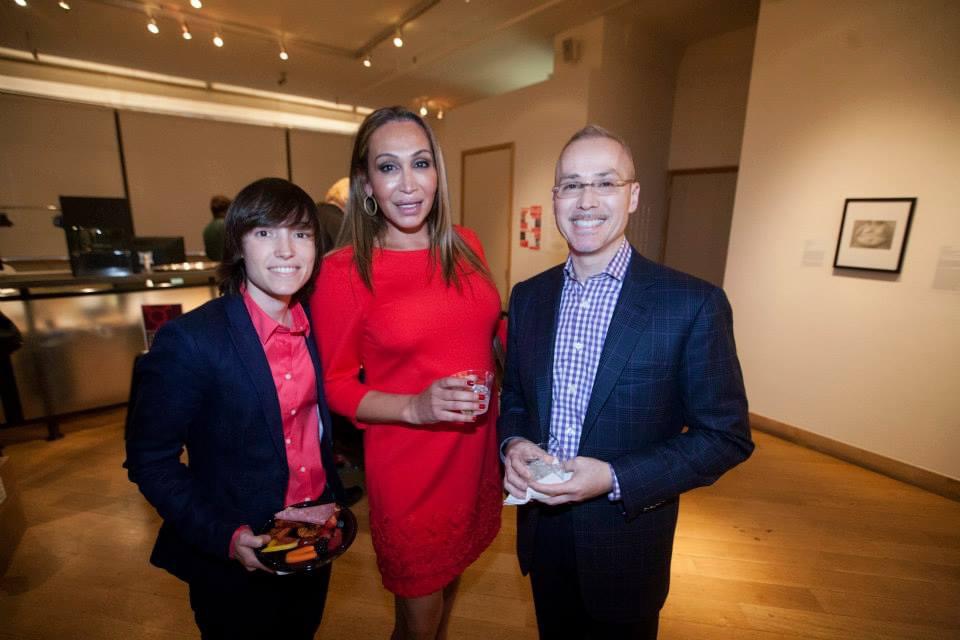Cyberbullying Resources for Parents and Caregivers
As caring and supportive adults, we aspire to guide youth toward becoming compassionate, understanding, and resilient individuals. In a world where social and emotional challenges ...

By Dr. Laura Erickson-Schroth
Cecilia was one of those people who didn’t need a last name. If you said “Cecilia” in a group of queer or trans people anywhere in New York City, they knew exactly who you were talking about.
You could fill pages with her accomplishments. Powerhouse activist. Speaker. Performer. Author. Ms. Orlando on the TV show “Pose.” She was always juggling an inhuman number of projects and events. I’d known Cecilia for a decade before joining The Jed Foundation; we met as board members for the book “Trans Bodies, Trans Selves.” I didn’t realize Cecilia had a connection to JED until I stumbled across JED Voices interviews with her a month after I started as chief medical officer.
Cecilia was what Laverne Cox calls a “possibility model” — someone who others can look up to and imagine a future for themselves. There wasn’t an empty seat in the house at her first memorial service, held just a day after her death.
I loved so many things about Cecilia. She was wickedly funny and absolutely irreverent. Looking back at messages between us, I found one where I asked her to send me a copy of a play she was in that hadn’t debuted yet. She replied five minutes later, saying, “I’m not sure if I am allowed but… do I strike you as someone that only does things she is allowed?”
Cecilia never said no to anyone who asked her. If you reached out about her speaking at an event, her response was always, “Sure, when is it?” When someone needed something — food, a place to stay, a hug — she was there. At the same time, she also had boundaries. When people became “too much drama,” she quietly exited the situation. The last time I saw Cecilia, she and her partner, Peter, were over for dinner. She had launched her consulting business and was hiring new employees and traveling all over the country. But what she most wanted to talk about was her personal life. “You have to come kayaking with us near our place!” In follow-up messages, she excitedly texted about the new house she’d bought upstate, sending photos of a little waterfall in the backyard.
What I loved most about Cecilia was that she brought an open heart to everyone she interacted with despite all she’d been through. Since childhood, she had met so many people who had disappointed her, taken advantage of her, abused her. Yet she approached every new person with a clean slate and open arms.
There was a story Cecilia used to tell about her life growing up in Argentina. Because she was so different from her peers, and her brother had told her she’d been found on the railroad tracks, she convinced herself that she had been left on Earth by a UFO. When Cecilia brought up her theory to her grandmother, her grandmother packed a backpack full of snacks and trudged with little Cecilia into a field, where they spent the night together waiting for the UFO to come take her back. When they woke up on the grass in the morning, her grandmother said, “Maybe you did come from a UFO, but you live with us now. We’re your family, and I love you. Even if you came from a UFO, let’s make the best of it.”
Research shows that having just one caring adult can be what changes a young person’s path in life. If it hadn’t been for Cecilia’s grandmother, the world might not have known who Cecilia could become. Be that caring adult, and surround the young people you know with as many caring adults as possible. It really does matter.
If you or someone you know needs to talk to someone right now, text, call, or chat 988 for a free confidential conversation with a trained counselor 24/7.
You can also contact the Crisis Text Line by texting HOME to 741-741.
If this is a medical emergency or if there is immediate danger of harm, call 911 and explain that you need support for a mental health crisis.